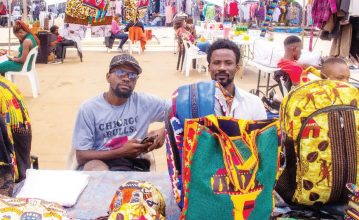Music sponsorship woes
It is generally believed that sponsorship in art and sports is a huge catalyst for success.
Memories are still fresh of how former president Bakili Muluzi’s glittering football sponsorship steered Big Bullets into a force to reckon with on the African continent.
The Muluzi financial boost culminated in The People’s Team’s participating in a Confederation African Football (CAF) competition.
It is the same story in music circles. Most local musicians doing well in the industry today are products of individual or company sponsorship which unearthed hitherto unknown talent.
Artists such as Mlaka Maliro, Billy Kaunda, Wendy Harawa, Joseph Nkasa, Thomas Chibade and Armstrong, among others, rose from nothing to be what they are today because someone helped them.
But sadly, most music sponsorships end on a sad note after misunderstandings.
Blantyre-based promoter, Jai Banda, popularly known in music circles as Mr. Entertainer, who has sponsored many bands and solo artists, says it is not surprising that most musicians in Malawi have no permanent sponsors.
“We set a reputation that musicians do not appreciate when they rise to fame and use any means to dump and destroy your reputation to default the contracts and reap everything including what they did not sow,” says Banda.
He adds that the way most contracts end proves that Malawian musicians do not understand the concept of contracts and sponsorship.
“I am an example. Most of the contracts I signed with artists [turned] sour and I was always the loser.
“When you are organising a music show, you can agree to share gate collections after recovering the invested money, but if you fail to recover the [invested] money, they still demand a lot of money forgetting that you have made a loss. There is a big gap and, if not bridged, we should not expect to see sponsors coming in,” said Banda.
He advised musicians to always think about the money sponsors invest for their success and should not be carried away when they become famous.
He said foreign artists spend years with one sponsor and that can happen in Malawi.
Banda said another problem is lack of maturity among most musicians. He said most sponsors want to work with artists that are reputable, have a clean record and are able to promote the sponsors’ interests.
He said some sponsors want their musicians to always look smart, dress properly and be punctual for activities, but many do not achieve this.
He also revealed that most musicians want to be hero-worshipped and this does not please sponsors.
“Until we solve these problems, sponsors will remain unattracted to music,” said Banda.
Ken Limwame, whose Nde’feyo Entertainment lost two artists Piksy and Armstrong following contractual misunderstandings, says the major task is to rebuild artists’ image.
He said there are many individuals and companies who can support musicians but they are discouraged by musicians’ conduct.
“Artists’\ image is important. This is also common in sports. Some teams are able to attract sponsorship while others are not. What controls this is history. If sponsors hear that an artist breached a contract in the past, they fear to take him or her on board. Sponsors prefer organised artists,” Limwame said, adding that many local musicians have no sponsors because they wait for sponsors to approach them.
He said artists are supposed to source sponsorship through proper means and sign contracts and honour them.
Renowned musician Soldier Lucius Banda blames fellow musicians for the mess.
“Most musicians come into the music village seeking help and, instead of building a second house to strengthen the base, they build [their own villages] and destroy what they [found],” he said.
Banda, however, blamed sponsors for supporting foreign artists instead of local material.
He also said there is need for transparency in handling projects with artists.





